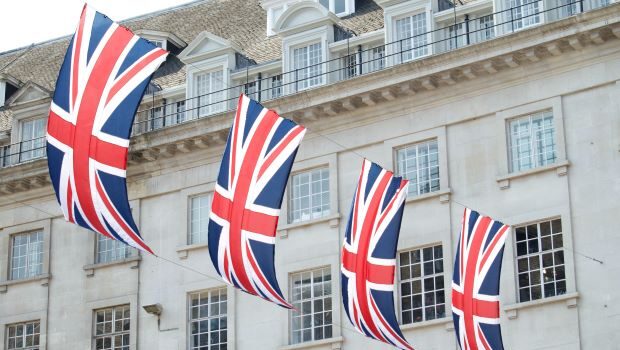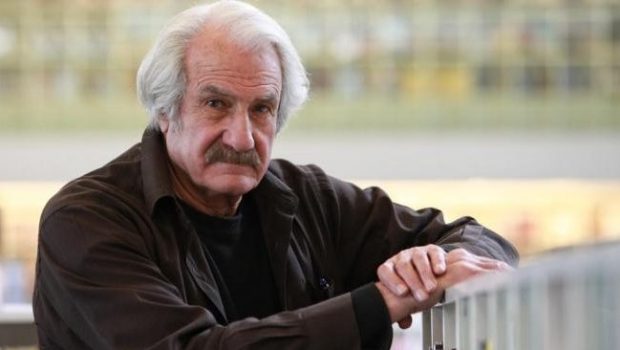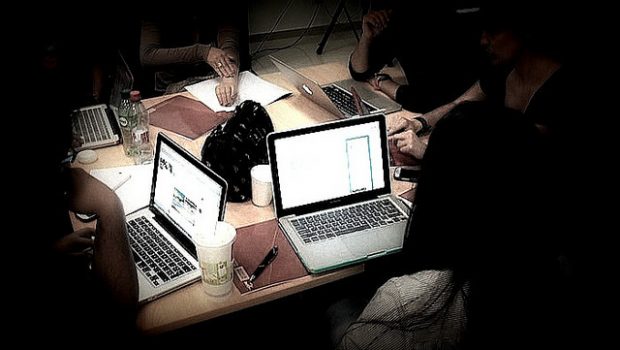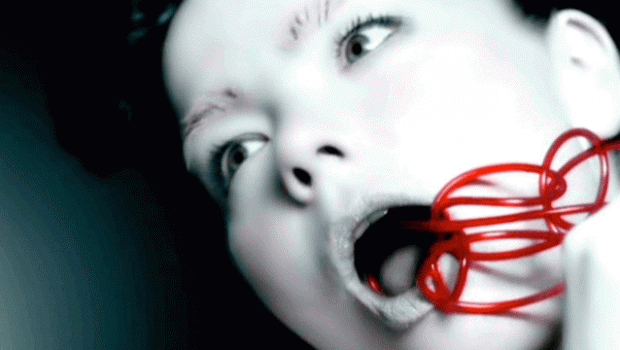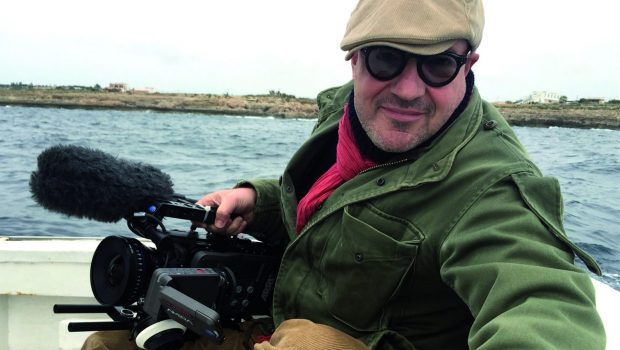People
Gente
Adriana Díaz Enciso
An asthma crisis prevented me from going out and measuring directly in the streets the level of national enthusiasm or indignation. I wasn’t around any of the innumerable street parties or concerts during the previous days, though I did manage to see how some parts in central London were decorated for the occasion and the Union Jacks started to proliferate. A balcony close to Hyde Park a week before, decked with red, white and blue, could well be evoking the French Revolution.
I saw Charles the III’s coronation, broadcast by the BBC, in my computer, at moments lying on the sofa. A perfect distraction for a rainy day of convalescence.
It is pointless to deny that the formation of those soldiers with their beautiful, anachronic uniforms is impressive. Royalty’s great public occasions (jubilees, weddings, coronations, funerals) are spectacles conceived and rehearsed down to their minutest detail to provoke a reflex reaction of awe: the admiration of the child; the awe stirred by fireworks, the splendour and grandeur of any kind that irrupt suddenly in our everyday life. The Republican mind may rage as much as it wants, but the eye will still follow, entranced, the procession’s magnificence.
It is, however, hard to take it seriously when the media commentators talk so much drivel, or when some of the interviewees in the crowds that have been camping for a whole day talk about their obsession with the English royal family, their collection of Windsors’ memorabilia. No doubt these celebrations, regardless any other meaning they may have, infantilize people.
What I care about, or at least intrigues me, are the human stories behind all this. I find something moving in those soldiers, with their black and red uniforms, the headpiece that must be so heavy and hardly lets them see; in their sheer perseverance. More than 4,000 members of the armed forces came to London from different units throughout the UK. I wonder what they think, what meaning does it have for them to be there, as the cogs of the ceremony; how their lives are like when they go back home or to their military base. How many anonymous colds, pneumonias, after the long day of rain and discipline in the open air.
There isn’t much that I—or anybody—can say that makes sense about the journey in golden coaches (the Gold Stage Coach used after the ceremony to go back to Buckingham Palace, very old, is seemingly also very uncomfortable), nor about the astonishing diversity of outlandish costumes. I understand it all as part of a spectacle that cannot be entirely intelligible for anyone who hasn’t grown up in a monarchy.
And what about the service itself? Mysterious. Absurd. Eloquent. Ridiculous. Dignified. Demented. Moving. All this together, and more. Westminster Abbey as the stage helps, of course, to confer to it the dignified and the mysterious. So does the music—Handel, William Byrd, Elgar, Bach, Purcell, and the pieces commissioned by the occasion, including the one interpreted by the gospel Ascension Choir. It was a magnificent and incomprehensible spectacle all at once, saturated with symbols: the royal spurs, the sovereign’s orb, the sceptre, that 17th century bejewelled sword, like Excalibur, presented by Penny Mordaunt, who’s been leader of the House of Commons and, not long ago, contender for the prime minister’s job. There were changes of attire, symbolical too, and an anointment hidden from our eyes by a hand-embroidered screen featuring angels, birds and a tree that, I gather, must be meant to be magic somehow. I say magic, because the anointment is the point in the ceremony that confirms the supposed divine order that confers the title of monarch to a human being.
I can’t believe that anyone, not even the members of the royal family, still believe that theirs is a power come from above. I suppose that during those minutes hidden from the eyes of us, mere mortals, another form of devotion, of relationship with their god and what they consider their mandate must take place, for, as I’ve already said in the pieces I wrote for this space last year, after Elizabeth II’s death, you’d have to be insane to believe, in the 21st century, in the divine design behind kingship.
What I was rather thinking of as I watched the ceremony, a bit stoned with steroids and antibiotics, was how curious we humans are; all the strange things we do in order to confer meaning to our existence, and how we consecrate them by doing them in common with others. The serious games we play. Architecture, music, a religious service are part of this arcane instinct and, in this case, for these people (the king himself and his wife Camilla, the Archbishop of Canterbury Justin Welby and all the other religious ministers involved), the profound meaning of the coronation was no doubt for real.
I tried to imagine how the occasion was experienced by the musicians, the choir members. How it will be remembered afterwards by those children and teenagers; by the young girl with spots, the boy with braces who sang sublime music in utter surrender.
I admit that I was moved to see that 74-year-old man receiving the full weight of what he believes to be his destiny, after a lifetime of waiting. For—and here let’s leave aside, just for a moment, the issue of the legitimacy or otherwise of monarchy—if he believes it is his destiny, somehow it is. I mean, he has subjected his life to that idea of destiny, to extremes that must not be easy to bear. That is his reality, even if it isn’t so for many of us. There he was, accepting it before the world’s eyes. At moments he seemed rather fragile (he’s good at the mournful, melancholic expression), and the moment the crown was placed on his head, the physical and symbolic weight was more than visible. I felt something similar looking at his wife, a bit older than him. We may think about them whatever we want, but at least we ought to admit that a certain kind of courage is needed to expose yourself like that, on the last stretch of your life, during a ceremony that couldn’t possibly be more intimate or more public at once. This wasn’t the coronation of Elizabeth II, a young and beautiful woman about whom the world then knew very little. (Impossible not to perceive her absence now.) Now, the future of the new monarch’s reign appears by necessity brief, while that of monarchy itself is under ever growing questioning. Many of us wonder whether this imposing spectacle is the beginning of the end, and this king cannot ignore it.
Two were the key themes of the discourse in this bizarre ceremony: the peaceful coexistence of all faiths—the symbolic objects were presented to the king by ministers of different religions—and the will to serve. The beginning of the coronation was the unprecedented welcoming of the monarch by a boy from the Chapel Royal: “Your Majesty, as children of the kingdom of God we welcome you in the name of the King of kings.” To which Charles III replied: “In his name and after his example I come not to be served but to serve.” These words, of course, come from the Gospels, leaving open the unfathomable question of what Charles means when he says, “in his name”. As for the vocation to serve, a recurring theme in his coronation, we’ll get there later.
:::
While all this was happening, other voices made themselves heard in Trafalgar Square. Protesters had gathered around the organisation Republic to reiterate that Charles III is not their king. The protest was not only pacific—it had been announced four months before, in agreement with the police, in the understanding of the right to free speech. However, as soon as the first “Not my king!” calls were heard, the arrests and confiscation of placards started. The demonstration continued, in considerable and resounding numbers. The police insisted that those arrested were carrying lock-on devices. Lock-on is forbidden by the new Public Order Bill approved a week prior to the coronation and driven to a great extent by the sulphuric breath of Suella Braverman, the Home Secretary, who we expect to see any moment now marching along with the cabinet, hoisting the Fascist Pride flag.
The detainees were liberated after 16 hours. A few days later, the police acknowledge having been confused around the supposed offensive device (the straps to secure their placards) and apologized. Graham Smith, leader of Republic and one of those arrested made it clear that he’s not accepting the apology and will proceed to legal action.
The undermining of the right to protest in the United Kingdom has been underway for a while. The new law is its latest and alarming realization. It is both draconian and ambiguous, and therefore bound to cause infinite interpretation conflicts among the police force that receives the orders to implement it. Its severity as a threat to the freedom of speech that Britain flaunts so proudly is superlative. From my perspective, the call “Out with the monarchy” can wait, but not—not for one second—that of “Tories Out!”.
:::
Among those who say that Charles III is not their king are not only the anti-monarchy organisations. There are also those who claim to be “on princess Diana’s” or “prince Harry and Meghan’s side”, whatever that means. The subject is too vast for this space, and utterly boring, but it’s worth noting how this form of “dissidence” is neurotic prey of the endless Windsors soap opera to the same degree as those who claim themselves to be “with” the king or the late queen. That this embarrassing projection of affection and emotions upon royalty and upon any form of celebrity reflects an abysmal existential void, we know, but there are other, more complex nuances.
I believe that a people’s traditions deserve respect; I think that those who still want the monarchy deserve, in principle and as individuals, as much respect as those who want to get rid of it. I don’t believe we have a right to say that the crowds who gathered at The Mall and in front of Buckingham Palace under the rain to celebrate the coronation are all idiots. The British monarchy is a fundamental element, for better or worse, in the construction of this nation’s history, and history, as we well know, is always complex, a mesh of nuances and contradictions. And yet I confess that, sometimes, I find it hard to instinctively feel that respect.
The day after the coronation I was feeling a bit better, and I decided to go to Regent’s Park, one of the many places where “the people” would gather that day to celebrate The Big Lunch. The park was the same as ever, except for the Broadwalk, where dozens of tables had been set for people bringing their own picnic. In some streets, neighbours organized themselves spontaneously for this street party, and I could see them from the bus window: the doors outside, surrounded by little flags.
Those who went to Regent’s Park really made an effort—not only flags, but tablecloths, napkins, hats, spectacles decorated with the Union Jack. Those who didn’t wear a hat had crowns instead. (It has to be said that crowns are a weakness in the UK; people also wear paper crowns in Christmas, I don’t know why.) Here and there you could hear the popping of champagne corks. It was in a way funny to watch, though disconcerting is a more adequate term. It was a mix of the Mad Hatter’s party and the last supper, mid-plague, in Herzog’s Nosferatu. But it was impossible to ignore the weight of nationalist fervour, and that, I don’t find funny.
At some point a band called The London Strollers was walking among the tables, playing properly some horrible music. People clapped and danced, and I was swept by a big sense of disgust. I left immediately, embarrassed to be there, even if it was on the role of correspondent. Later, sitting on a bench among the park’s “normal” strollers, I reflected. I wondered why I had found it all so vulgar; I thought that no doubt those people were having a good time in a park on a Sunday, in a community event that holds some meaning for them, and that they had a right to do so. I wondered what it all meant.
I also thought of a rather different and much more diverse crowd gathered a few weeks ago only, during Extinction Rebellion’s (along with other 200 organisations) The Big One protest: four days of mass mobilisation in protest for the government’s inaction in the face of the climate crisis. Tens of thousands of people gathered then in Westminster, with rage, but also with hope and imagination. When I got there and saw myself surrounded by what basically seemed to be good people, united in solidarity with the planet and with their fellow humans, I felt that mixture of joy and melancholy that I often experience in similar circumstances. Melancholy, because of the question of whether our protests are of any use, whether they really change things. The joy comes from the intuition that yes, they are useful, they do change something, even if the change is much slower or more subtle than we wish; that the change has to a great extent already happened from the moment we’re gathered there.
Over there, I enjoyed the music, watching people dance. The emptiness I saw, or thought I saw, at the Big Launch for the king in Regent’s Park, during XR’s four days of rebellion was hope instead.
However, I can’t help noticing the risks in these musings, which may be a bit smug. After all, as I wrote in this space last year, when I was out in the streets after the queen’s passing, among those other crowds, I didn’t feel any real or tangible division. We were simply people, nothing more, capable to be together in public spaces regardless the different reasons why we were there (mine, as was the case with many others, being curiosity). No doubt XR’s is a different tribe from the one that flaunts the Union Jack with calls of “God save the king”, but all tribes are made up of individuals, and the stressing of tribal differences in our perception is usually the source of the vilest conflicts. Is it possible to be part of a tribe, or feel sympathy for it, while letting be those that we don’t like so much? It should be possible, from both sides, as a minimum requisite of the social contract, of human coexistence, around which the UK is usually quite reasonable, though the present government doubtless tries hard to undermine it.
:::
In the end, what matters regarding this coronation issue is the discussion about the future, or lack of it, of the monarchy; about the role it plays in national life; about its possible virtues and well-known vices; about its meaning for the people who live here.
And here we’re back to the monarchs’ alleged will to serve. I believe that, in the case of some members of the royal family, that will is genuine. It was fierce in the late queen, and the present king has also amply proved to conform to it during his time as prince of Wales. Needless to say, the contradictions are massive: how can anyone serve others when they are depositaries of such monstrous privilege? The conflict of interpretation is also enormous: what they consider to be service may not seem so to others, who would rather want all the work that some members of the royal family no doubt do were to be done exclusively by an elected ruling class.
That Charles III was anointed monarch without having been elected justifies not having any respect for him? His work as an activist for ecologic and sustainable concerns has been immense and fruitful. His urban development projects, while they may differ from others in regard to aesthetics, coincide on the need of a humane and harmonic planning in accord with equity principles. Not contemptible either is the education and training work with young people through The Prince’s Trust. In the deranged context of a country with a monarchy, it is utterly disconcerting to listen to this man talk about his convictions, which might well seem to be of the socialist sort; about his concern regarding the problems engendered by inequality and injustice, when we know about his incalculable fortune and equally incalculable privileges. It is also puzzling to acknowledge the work he’s done for the countryside and farming, translated in valuable support to many people, when that work is only possible thanks to his nigh feudal ownership of vast extensions of land. If the monarchy disappears in one go, a great deal of that work would simply disappear as well; that other kingdom, capitalist greed, would take over. No matter where we start the discussion, the contradictions leap at us. However, an important starting point for any serious debate is to acknowledge not only the errors, flaws and blunders of who’s considered the enemy, but their virtues too. In his own way, by necessity weird and contradictory, coming from a royal, Charles III has shown so far a genuine vocation for service that has yielded fruits.
How can we reconcile this reality with the utterly inacceptable, obscene dimension of his fortune and privileges? The Guardian newspaper has been engaged, around the coronation, on a series of in-depth research about the fortune of the royal family in general, and Charles’s in particular. It is, no doubt about it, a gigantic scandal. In our times, and with the financial crisis which is literally taking food off people’s tables, allowing the monarchy to keep on enjoying such privileges is simply immoral, and if the institution is to survive, the redistribution of its wealth must be a central point.
In this context, the fact that in Charles III’s discourse there seems to be far more genuine interest for people’s welfare than in the discourse of the governments we’ve seen pass through Downing Street for at least thirteen years is a source of infinite confusion. Surely, though, this isn’t necessarily a pro-monarchy argument, but rather the depressing confirmation that, of late, politicians in many democracies lack that vocation of service which is their obligation and the reason for their mandate.
Recently, the royal archives opened their doors to researchers to carry out studies about the historic relationship of royalty with slavery, and about their responsibility in colonialist atrocities. The king has already expressed his “personal sorrow” about “slavery’s enduring impact”, but such feelings are not enough. There’s a need of direct admission of responsibility, and reparation. Let us hope that this cooperation with the above-mentioned research is a first step in that direction.
The monetary cost of royalty for the UK is immense. The accounts of what they contribute on their turn must be clearer and transparent. Squandering in the interest of splendour isn’t justifiable, and this king has the opportunity—perhaps the last one for his family, if they want the monarchy to survive—to transform it so that, while still being part of British reality, it stops being a burden and an offence.
This—accounts in financial terms—is the easiest part of the debate. The complexity comes when we talk about history, tradition and symbols; of what makes up the identity of many people, monarchist as well as republican. We come back to the question about the value of that which has a personal meaning for individuals. It is my impression that, in this sense, the debate still hasn’t gone beyond the division “us and them”. Such a division is, from both sides, simplistic and puerile. Neither the monarchy nor the government have contributed to establishing a clear and transparent dialogue, but it is abundantly clear that people need it and demand it with growing urgency. The matter is, as you have seen, complex, riddled with confusion, contradictions, and not lacking in interest.
-Image by Andrew Green

Adriana Díaz-Enciso es poeta, narradora y traductora. Ha publicado las novelas La sed, Puente del cielo, Odio y Ciudad doliente de Dios, inspirada en los Poemas proféticos de William Blake; los libros de relatos Cuentos de fantasmas y otras mentiras y Con tu corazón y otros cuentos, y seis libros de poesía. Su más reciente publicación, Flint (una elegía y diario de sueños, escrita en inglés) puede encontrarse aquí.
©Literal Publishing. Queda prohibida la reproducción total o parcial de esta publicación. Toda forma de utilización no autorizada será perseguida con lo establecido en la ley federal del derecho de autor.
Las opiniones expresadas por nuestros colaboradores y columnistas son responsabilidad de sus autores y no reflejan necesariamente los puntos de vista de esta revista ni de sus editores, aunque sí refrendamos y respaldamos su derecho a expresarlas en toda su pluralidad. / Our contributors and columnists are solely responsible for the opinions expressed here, which do not necessarily reflect the point of view of this magazine or its editors. However, we do reaffirm and support their right to voice said opinions with full plurality.
Una crisis asmática me impidió salir a la calle a medir directamente el nivel de entusiasmo o indignación nacionales. No anduve por ninguna de las innumerables fiestas callejeras o conciertos de los días anteriores, aunque sí alcancé a ver cómo algunas partes del centro de Londres empezaban a ser decoradas para la ocasión y proliferaban las banderitas con la Union Jack. Un balcón cerca de Hyde Park una semana antes, engalanado con rojo, azul y blanco, bien podría estar evocando la Revolución francesa.
Vi la coronación de Carlos III, transmitida por la BBC, en mi computadora, a ratos tumbada en el sofá. La distracción perfecta para un día lluvioso de convalecencia, y mucho mejor, hay que decirlo, que La Mañanera.
Es inútil negar que la formación de esos soldados de distintos regimientos, con sus hermosos, anacrónicos uniformes, es impresionante. Los grandes acontecimientos públicos de la realeza (jubileos, bodas, coronaciones, funerales) son espectáculos concebidos y ensayados hasta el último detalle para provocar una reacción refleja de admiración: la admiración del niño; la que suscitan los fuegos artificiales, el esplendor y la grandeza de cualquier índole que irrumpen de pronto en la vida cotidiana. La mente republicana puede rabiar cuanto quiera, pero el ojo aún seguirá fascinado el fausto de la procesión.
Es difícil, sin embargo, tomarlo en serio cuando los comentaristas de los medios dicen tanta estupidez, o cuando algunos entrevistados entre las masas que han estado acampando desde un día antes hablan de su obsesión con la familia real inglesa, de su colección de objetos relacionados con los Windsor. Sin duda estas celebraciones, aparte de cualquier otro significado que puedan tener, infantilizan al pueblo.
A mí lo que me importa, o al menos intriga, son las historias humanas detrás de todo esto. Algo me conmueve en esos soldados, con sus uniformes rojo y negro, el sombrero que ha de ser pesadísimo y apenas les permite ver, por su pura perseverancia. Vinieron a Londres más de 4,000 miembros de distintos regimientos desde todo el Reino Unido. Me pregunto qué piensan, qué significado tiene para ellos estar ahí, en el engranaje de la ceremonia; cómo son sus vidas cuando regresan a casa o a sus bases. Cuántos resfriados anónimos, neumonías, tras el largo día de lluvia y disciplina al aire libre.
Poco puedo decir —ni yo ni nadie— que tenga sentido respecto al trayecto en carrozas revestidas de oro (la segunda, utilizada al final de la ceremonia para volver al Palacio de Buckingham, antiquísima y al parecer muy incómoda), ni de la pasmosa diversidad de disfraces. Lo entiendo todo como parte de un espectáculo que para nadie que no haya crecido en una monarquía puede ser del todo comprensible.
¿Y el servicio en sí? Misterioso. Absurdo. Elocuente. Ridículo. Digno. Demente. Conmovedor. Todo eso junto, y más. La Abadía de Westminster como escenario ayuda, por supuesto, a conferirle lo misterioso y lo digno. La música también: Händel, William Byrd, Elgar, Bach, Purcell, además de piezas comisionadas para la ocasión, una interpretada por el Ascension Choir, coro de gospel. Fue un espectáculo magnífico e incomprensible a la vez, saturado de símbolos: las espuelas reales, el orbe, el cetro, esa espada del siglo XVII llena de joyas, como Excalibur, presentada solemnemente por Penny Mordaunt, líder de la Cámara de los Comunes y no hace mucho contendiente en el partido conservador por el hueso de primer ministro. Hubo cambios, simbólicos también, de atuendo, y una unción oculta a nuestros ojos tras un biombo bordado a mano con ángeles, pájaros y un árbol que, supongo, algo de mágico pretende tener. Digo mágico, porque el ungimiento es el punto de la ceremonia que confirma el supuesto orden divino que confiere a un ser humano el título de monarca.
Yo no puedo creer que ni siquiera los miembros de la familia real sigan creyendo que el suyo es un poder venido de lo alto. Supongo que alguna otra forma de devoción, de relación con su dios y con lo que consideran su mandato tendrá lugar durante esos minutos ocultos a la mirada de nosotros, simples mortales, porque, como lo dije ya en los artículos que escribí en este espacio el año pasado tras la muerte de la reina Isabel II, habría que estar loco para creer, en el siglo XXI, en este asunto del designio divino de la reyetud.
Lo que pensaba más bien al ver la ceremonia, un poco ida por la cortisona y los antibióticos, era lo curiosos que somos los humanos; en todas las cosas extrañas que hacemos para conferirle significado a nuestra existencia, y cómo las consagramos al hacerlas en común. Los juegos serios que jugamos. La arquitectura, la música, un servicio religioso son parte de este instinto arcano y, en este caso, para estas personas (el rey mismo y su esposa; Justin Welby, el Arzobispo de Canterbury y todos los otros ministros religiosos involucrados), el sentido profundo de la coronación iba, sin lugar a dudas, en serio.
Traté de imaginarme cómo experimentaban el evento los músicos, los cantantes del coro. Cómo lo recordarían después esos niños y adolescentes; la jovencita con acné, el niño con frenos que cantaban, con absoluta entrega, música sublime.
Admito que me conmovió ver a ese hombre de 74 años recibiendo todo el peso de lo que él cree ser su destino, tras una vida de espera. Porque —y dejemos aquí de lado, sólo por un momento, la cuestión de la legitimidad o no de la monarquía— si él cree que es su destino, de alguna manera lo es. Es decir: ha sometido su vida a esa idea de destino, llegando a extremos que no han de ser fáciles de soportar. Esa es su realidad, aunque no sea la de muchos de nosotros. Ahí estaba, recibiéndolo bajo la mirada del mundo. A ratos parecía muy frágil (se le da bien eso de la expresión compungida y melancólica), y en el momento en que le pusieron la corona, el peso, físico y simbólico, sobre su cabeza, era más que visible. Algo parecido sentí al ver a su esposa Camilla, un poco mayor que él. Podemos pensar de ellos lo que sea, pero al menos habrá que reconocer que hace falta una forma de valor para exponerse así, en el último tramo de sus vidas, durante una ceremonia que no podría ser ni más íntima ni más pública a la vez. Esto no era como la coronación de Isabel II, una mujer joven y bella de la que el mundo no sabía casi nada. (Imposible no advertir, ahora, su ausencia.) Ahora, el futuro del reinado del nuevo monarca se muestra por necesidad breve, y el de la realeza en sí está cada vez más en entredicho. Muchos nos preguntamos si este grandioso espectáculo es el principio del fin, y este rey no puede ignorarlo.
Dos son los temas clave del discurso de esta extraña ceremonia: la convivencia pacífica de todas las fes —los objetos simbólicos le fueron entregados al rey por ministros de distintas religiones— y la voluntad de servicio. El inicio de la coronación fue la bienvenida del monarca, sin precedentes, a manos de un niño miembro del coro de la Capilla Real: “Su Majestad: como hijos del reino de Dios, le damos la bienvenida en el nombre del Rey de reyes”, a lo que Carlos III respondió: “En su nombre y siguiendo su ejemplo, no he venido a ser servido, sino a servir”. Estas palabras provienen, claro está, de los Evangelios, dejando abierta la pregunta insondable de qué quiere decir Carlos con “en su nombre”. Sobre la vocación de servicio, tema recurrente de su coronación, volveremos más adelante.
:::
Mientras todo esto sucedía, otras voces se hacían escuchar en Trafalgar Square. Diversos manifestantes se habían congregado alrededor del grupo República para insistir en que Carlos III no es su rey. La protesta no sólo era pacífica: se había anunciado desde cuatro meses atrás, en acuerdo con la policía, bajo el entendido del derecho a la libre expresión. Sin embargo, apenas se oyeron los primeros “No es mi rey” empezaron las detenciones y la confiscación de pancartas. La protesta prosiguió, constituida por un número bastante respetable y sonoro de individuos. La policía insistía en que los arrestados llevaban implementos para sujetarse a espacios públicos, como ha sucedido en particular en las protestas por el cambio climático, acción que quedó prohibida en la nueva Ley de Orden Público aprobada una semana antes de la coronación, e impulsada en buena medida por el aliento sulfúrico de la Secretaria del Interior, Suella Braverman, a quien esperamos ver de un momento a otro marchando con todo el gabinete, enarbolando su bandera de Orgullo Fascista.
Los detenidos fueron liberados 16 horas después. Días después la policía reconoció haberse confundido respecto al supuesto instrumento del delito (las correas que llevaban los protestantes para sujetar sus pancartas) y pidieron disculpas. Graham Smith, líder del grupo República y uno de los arrestados, dejó claro que no acepta las disculpas y que procederá a una denuncia.
La erosión del derecho a la protesta en el Reino Unido empezó hace ya tiempo. La nueva ley es su última y alarmante concreción. Es draconiana y ambigua a la vez, por lo que se presta a infinitos conflictos de interpretación por parte de la policía que recibe las órdenes de implementarla. Su severidad como amenaza a la libertad de expresión que el país ostenta con tanto orgullo es superlativa. Desde mi perspectiva, el llamado “Fuera con la monarquía” puede esperar, pero no, ni por un segundo, el de “Fuera los tories”.
:::
Entre quienes dicen que Carlos III no es su rey están no sólo organizaciones antimonárquicas. Están también aquellos que están “de parte”, sea lo que sea que eso signifique, de la princesa Diana, o del príncipe Harry y su esposa Meghan. El tema es amplio para este espacio, y por demás aburrido, pero cabe observar cómo esta forma de “disidencia” es presa neurótica de la interminable telenovela de los Windsor en la misma medida que quienes se dicen de parte del rey o de la recién fallecida reina. Que esta bochornosa proyección de afectos y emociones sobre la realeza y sobre cualquier forma de celebridad refleja un vacío existencial abismal, ya lo sabemos, pero hay otros matices más complejos.
Yo creo que las tradiciones de un pueblo merecen respeto; creo que quienes aún quieren a la monarquía merecen, en principio y en tanto individuos, tanto respeto como quienes se quieren deshacer de ella. No creo que tengamos derecho a decir que las multitudes que se reunieron en The Mall y frente al Palacio de Buckingham, bajo la lluvia, para celebrar la coronación, son todas idiotas. La monarquía británica es un elemento fundamental, para bien o para mal, en la construcción de la historia de esta nación, y la historia, como bien sabemos, es siempre compleja, tejida de matices y contradicciones. Confieso, sin embargo, que a veces es difícil sentir instintivamente ese respeto.
Al día siguiente de la coronación me sentía un poco mejor, y decidí ir a Regent’s Park, uno de los muchos lugares en que ese domingo se reuniría “el pueblo” para celebrar al rey en el Gran Almuerzo. El parque era el mismo de siempre, con excepción de la avenida llamada Broadwalk, donde se habían dispuesto docenas de mesas para que la gente llevara su propio picnic. En algunas calles, los vecinos se organizaron espontáneamente para esta fiesta callejera, y desde la ventana del autobús los podía ver: las mesas afuera, rodeadas de banderitas.
Los que fueron a Regent’s Park se esforzaron de veras: no nada más banderas, sino manteles, servilletas, sombreros, anteojos decorados con la Union Jack. Los que no llevaban sombrero, llevaban coronas. (Hay que decir que las coronas son una debilidad en el Reino Unido; se ponen también coronas de papel en navidad, no sé por qué.) Aquí y allá se oía el abrir de botellas de champaña. De alguna manera era divertido verlos, aunque desconcertante es un término más adecuado. Aquello era una mezcla entre la fiesta del Sombrerero Loco y la última cena a media peste en el Nosferatu de Herzog. Pero era imposible ignorar el peso del fervor nacionalista, y eso, para mí, no es divertido.
En un momento una banda llamada los London Strollers echó a andar entre las mesas, tocando correctamente una música horrible. La gente aplaudía y bailaba, y me entró una sensación de disgusto enorme. Me fui de inmediato, avergonzada de estar ahí, así fuera en el papel de corresponsal. Después, en una banca del parque, entre los paseantes “normales”, estuve pensando: en por qué me pareció todo tan vulgar; en que sin duda esas personas la estaban pasando bien en un parque un domingo, en un evento comunitario que para ellos significa algo, y que tenían derecho. En qué significaba todo aquello.
Pensé también en una muy distinta, y mucho más diversa, multitud, congregada hace apenas unas semanas en las protestas de abril de Extinction Rebellion (XR) junto con otras 200 organizaciones: cuatro días de movilización masiva en protesta por la inacción del gobierno ante la crisis climática. Decenas de miles de personas se reunieron entonces en Westminster, con rabia pero también con esperanza y con imaginación. Cuando llegué, y me vi rodeada de lo que básicamente parecían ser buenas personas unidas en solidaridad con el planeta y con sus semejantes, sentí esa mezcla de alegría y melancolía que me asalta en circunstancias similares. La melancolía es por la pregunta de si acaso nuestras protestas sirven de algo, si de verdad cambian las cosas. La alegría es por la intuición de que sí, sí sirven, sí cambian algo, aunque el cambio sea mucho más lento o sutil de lo que deseamos; de que el cambio en buena medida ya se ha efectuado desde el momento en que estamos ahí reunidos.
Ahí gocé la música, ver a la gente bailar. El vacío que vi, o creí ver, en el Gran Almuerzo por el rey en Regent’s Park, en los cuatro días de rebelión de XR era en cambio esperanza.
No dejo de ver, sin embargo, los riesgos en esta reflexión que algo tendrá de autocomplaciente. Después de todo, como escribí antes en este espacio, cuando anduve en la calle tras la muerte de la reina, entre esas otras multitudes, no sentí una división real ni tangible. Éramos gente, nada más, capaz de convivir con armonía en el espacio público sin importar los distintos motivos por los que estábamos ahí (el mío, como el de muchos, la curiosidad). Sin duda la de XR es una tribu distinta a la de los que enarbolan la Union Jack gritando “Dios salve al rey”, pero toda tribu está hecha de individuos, y la acentuación de las diferencias tribales en nuestra percepción suele ser fuente de los más viles conflictos. ¿Es posible ser parte de una tribu, o simpatizar con ella, y al mismo tiempo dejar en paz a otras que no nos gustan tanto? Debe ser posible, de ambas partes, como un mínimo requerimiento del contrato social, de la convivencia humana que en el Reino Unido suele ser bastante razonable, aunque el gobierno actual se esfuerce sin duda por minarla.
:::
Finalmente, lo que importa en este asunto de la coronación es la discusión sobre el futuro, o no, de la monarquía; sobre el papel que desempeña en la vida nacional; sobre sus posibles virtudes y bien conocidos vicios; sobre su significado para la gente que vive aquí.
Y con esto volvemos al tema de la supuesta voluntad de servicio de los monarcas. Creo que, en el caso de algunos miembros de la familia real, la voluntad es genuina. Era férrea en la fallecida reina, y el ahora rey también ha demostrado con creces obedecer a ella durante su desempeño como príncipe de Gales. Las contradicciones son inmensas, por supuesto: ¿cómo puede nadie prestar servicio a otros cuando es depositario de tan monstruosos privilegios? Lo es también el conflicto de interpretación: lo que ellos consideran servicio puede no parecérselo a otros, a quienes preferirían que todo el trabajo que algunos miembros de la familia real desempeñan sin duda alguna fuera realizado exclusivamente por gobernantes electos.
Que haya sido ungido como monarca sin ser electo, ¿justifica no tener ningún respeto por Carlos III? Su labor como activista en temas ecológicos y de sostenibilidad ha sido inmensa y fructífera. Sus proyectos de urbanismo, si bien difieren de los de otros en conceptos estéticos, coinciden en la necesidad de una planeación urbana humana, armoniosa y de acuerdo con principios equitativos. No es nada desdeñable tampoco el trabajo de educación y capacitación realizado con jóvenes a través del fideicomiso The Prince’s Trust. En el contexto enloquecido de un país con monarquía, es una experiencia por demás desconcertante oír hablar a este hombre de sus convicciones que bien podrían parecer socialistas, su preocupación por los problemas surgidos de la desigualdad y la injusticia, cuando sabemos de su incalculable fortuna e igualmente incalculables privilegios. Desconcierta también ver y reconocer el trabajo que ha hecho por el campo, traducido en el apoyo valioso a infinidad de personas, cuando ese trabajo es posible sólo por su propiedad casi feudal de vastas extensiones de tierra. Si la monarquía desaparece de tajo, buena parte de este trabajo simplemente desaparecería también; ese otro reinado, el de la avaricia capitalista, tomaría el relevo. Por donde quiera que se inicie la discusión, saltan las contradicciones. Pero un punto de partida importante para cualquier debate serio es reconocer no sólo los yerros o despropósitos de quien se considera el enemigo, sino sus virtudes también. A su manera, por necesidad extraña y contradictoria, siendo un miembro de la realeza, Carlos III ha demostrado hasta ahora una genuina vocación de servicio que ha dado frutos.
¿Cómo reconciliar esta realidad con la absolutamente inaceptable, obscena dimensión de su fortuna y privilegios? El periódico The Guardian ha estado realizando, en torno a la coronación, una serie de investigaciones a fondo sobre la fortuna de la familia real en general, y de Carlos en particular. Es, en efecto, un escándalo gigantesco. En los tiempos que corren, y con la crisis financiera que está literalmente quitándole el pan de la boca a mucha gente, permitir que la monarquía siga gozando de esos privilegios es simplemente inmoral, y si ha de sobrevivir la institución, la redistribución de su riqueza debe ser un punto central.
En este contexto, es fuente de infinita confusión el hecho de que en el discurso de Carlos III parece haber mucho más interés genuino por el bienestar de la gente que en el de los gobiernos que hemos visto pasar por Downing Street durante al menos trece años. Esto, claro, no es necesariamente un argumento pro-monarquía, sino la deprimente constatación de que los políticos en muchas democracias a últimas fechas carecen de la vocación de servicio que es su obligación y la razón de su mandato.
Recientemente, los archivos reales abrieron sus puertas a investigadores para realizar estudios sobre las relaciones históricas de la realeza con la esclavitud, y sobre su responsabilidad en las atrocidades colonialistas. El rey ha expresado ya su “dolor personal” por el “impacto persistente de la esclavitud”, pero estos sentimientos no bastan. Hace falta la admisión directa de responsabilidad, y la reparación. Esperemos que esta cooperación con las investigaciones mencionadas sea un primer paso.
El costo monetario de la realeza para el Reino Unido es inmenso. Las cuentas de lo que contribuyen a su vez tienen que ser más transparentes y claras. El despilfarro en aras del esplendor no es justificable, y este rey tiene la oportunidad —quizá la última que tenga su familia, si quieren que la monarquía sobreviva— de transformarla para que, siendo parte de la realidad británica, deje de ser una carga y una ofensa.
Esto, las cuentas en términos financieros, es lo más sencillo del debate. Lo complicado es cuando hablamos de historia, tradición y símbolos; de lo que conforma la identidad de mucha gente, tanto monárquica como republicana. Volvemos, de nuevo, a la pregunta del valor de aquello que tiene un significado personal para los individuos. Es mi impresión que, en este sentido, el debate todavía no rebasa la división entre “ellos y nosotros”. Dicha división es, de ambas partes, simplista y pueril. Ni la monarquía ni el gobierno han contribuido a establecer un diálogo claro y transparente, pero está claro que el llamado pueblo lo necesita y lo exige con cada vez mayor urgencia. La cuestión es compleja, llena, como habrán visto, de confusión y contradicciones, y no carente de interés.

Adriana Díaz-Enciso es poeta, narradora y traductora. Ha publicado las novelas La sed, Puente del cielo, Odio y Ciudad doliente de Dios, inspirada en los Poemas proféticos de William Blake; los libros de relatos Cuentos de fantasmas y otras mentiras y Con tu corazón y otros cuentos, y seis libros de poesía. Su más reciente publicación, Flint (una elegía y diario de sueños, escrita en inglés) puede encontrarse aquí.
©Literal Publishing. Queda prohibida la reproducción total o parcial de esta publicación. Toda forma de utilización no autorizada será perseguida con lo establecido en la ley federal del derecho de autor.
Las opiniones expresadas por nuestros colaboradores y columnistas son responsabilidad de sus autores y no reflejan necesariamente los puntos de vista de esta revista ni de sus editores, aunque sí refrendamos y respaldamos su derecho a expresarlas en toda su pluralidad. / Our contributors and columnists are solely responsible for the opinions expressed here, which do not necessarily reflect the point of view of this magazine or its editors. However, we do reaffirm and support their right to voice said opinions with full plurality.


